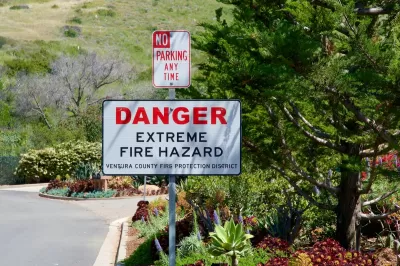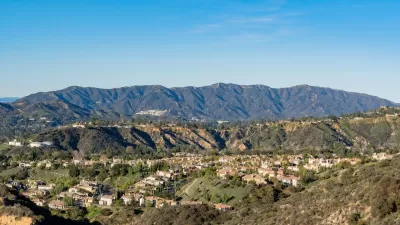Rising global temperatures driven by climate change are intensifying and prolonging wildfire seasons worldwide, necessitating improved forest management, public awareness, and urgent action to reduce fossil fuel emissions.

Wildfires are increasingly frequent and intense, with climate change playing a significant role in creating conditions conducive to fire outbreaks. While most wildfires are sparked by human activity, rising global temperatures fueled by greenhouse gas emissions exacerbate fire-prone conditions, such as extreme heat, dry weather, and drought. A phenomenon called "hydroclimate whiplash," where periods of extreme wetness are followed by severe dryness, has been identified as a key factor in the Los Angeles fires, which were preceded by a wet winter that spurred vegetation growth, later becoming fire fuel due to a record-dry summer in 2024. This trend is part of a global pattern, with wildfire seasons now extended by two weeks and fires occurring outside traditional seasons.
The impact of wildfires is immense, with recent events in California, Canada, and Brazil highlighting the scale of destruction. Rising temperatures have increased the area burned by wildfires in California by 172 percent in recent decades, while in Canada, wildfires in 2023 accounted for more than a quarter of global forest loss for the year. Boreal forests, which cover vast areas in countries like Russia and Canada, are particularly vulnerable, with climate change driving much of the increased fire activity. Globally, wildfires have doubled over the past 20 years, leading to devastating environmental and economic losses while threatening public health and biodiversity.
Experts stress the importance of proactive measures to reduce wildfire risk and improve response capabilities. Investments in early warning systems, better forest management practices, and public education are essential. Strategies include reducing monocultures, managing vegetation through prescribed burns or grazing animals, and implementing fire-resistant landscaping around homes. On a larger scale, addressing the root cause of rising temperatures—fossil fuel emissions—is critical. Organizations like the Union of Concerned Scientists have called on fossil fuel companies to take urgent action to reduce emissions and help mitigate the escalating wildfire crisis.
FULL STORY: How are wildfires connected to rising temperatures?

Planetizen Federal Action Tracker
A weekly monitor of how Trump’s orders and actions are impacting planners and planning in America.

Map: Where Senate Republicans Want to Sell Your Public Lands
For public land advocates, the Senate Republicans’ proposal to sell millions of acres of public land in the West is “the biggest fight of their careers.”

Restaurant Patios Were a Pandemic Win — Why Were They so Hard to Keep?
Social distancing requirements and changes in travel patterns prompted cities to pilot new uses for street and sidewalk space. Then it got complicated.

San Francisco Suspends Traffic Calming Amidst Record Deaths
Citing “a challenging fiscal landscape,” the city will cease the program on the heels of 42 traffic deaths, including 24 pedestrians.

California Homeless Arrests, Citations Spike After Ruling
An investigation reveals that anti-homeless actions increased up to 500% after Grants Pass v. Johnson — even in cities claiming no policy change.

Albuquerque Route 66 Motels Become Affordable Housing
A $4 million city fund is incentivizing developers to breathe new life into derelict midcentury motels.
Urban Design for Planners 1: Software Tools
This six-course series explores essential urban design concepts using open source software and equips planners with the tools they need to participate fully in the urban design process.
Planning for Universal Design
Learn the tools for implementing Universal Design in planning regulations.
Heyer Gruel & Associates PA
JM Goldson LLC
Custer County Colorado
City of Camden Redevelopment Agency
City of Astoria
Transportation Research & Education Center (TREC) at Portland State University
Camden Redevelopment Agency
City of Claremont
Municipality of Princeton (NJ)





























